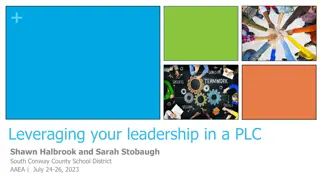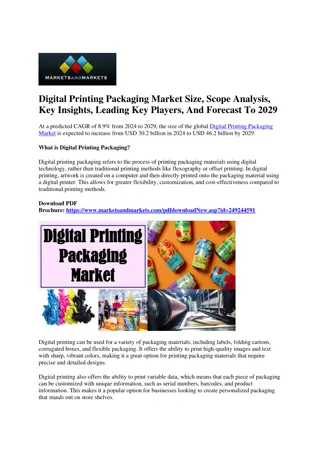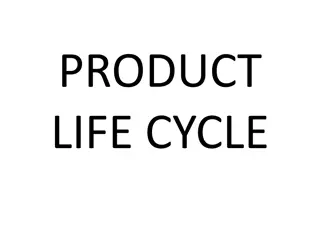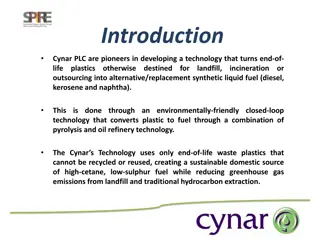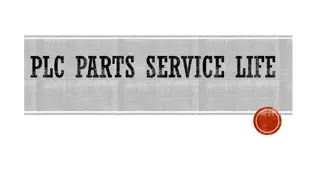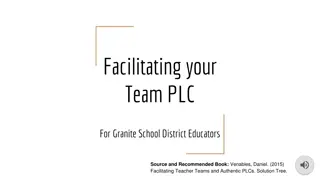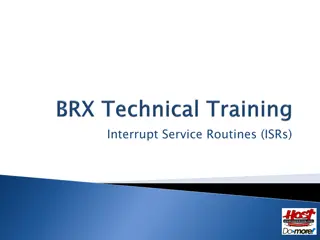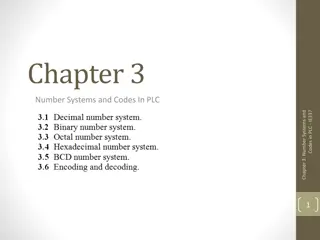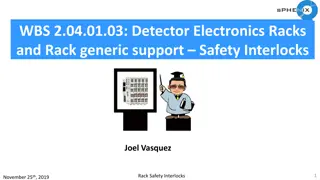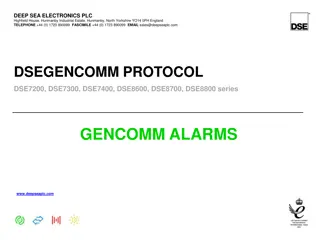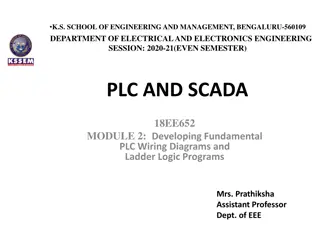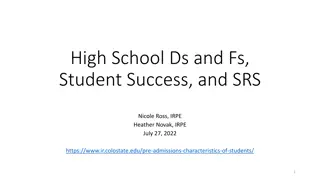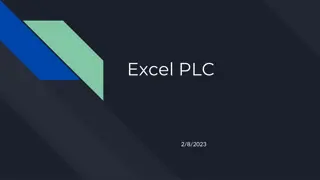
Enhancing PLC Success: Strategies and Reflections
Explore strategies for effective PLC work, including assessing student learning, supporting struggling students, and fostering productive team dynamics. Dive into the stages of group forming, understanding team challenges and strengths, and structuring PLC meetings for success. Learn about actions of collaboration and the iterative work cycle of a PLC.
Download Presentation

Please find below an Image/Link to download the presentation.
The content on the website is provided AS IS for your information and personal use only. It may not be sold, licensed, or shared on other websites without obtaining consent from the author. If you encounter any issues during the download, it is possible that the publisher has removed the file from their server.
You are allowed to download the files provided on this website for personal or commercial use, subject to the condition that they are used lawfully. All files are the property of their respective owners.
The content on the website is provided AS IS for your information and personal use only. It may not be sold, licensed, or shared on other websites without obtaining consent from the author.
E N D
Presentation Transcript
Outcomes for todays PLC work Identify the current state of our PLC communities and plan for continued progress around the 4 essential questions that drive our work Analyze a math lesson designed to formatively assess student learning and plan for how this might help our PLCs to address question 3- What do we do for those students who don t get it? Look at various elements that comprise productive PLC work and think about what might best support our teams.
New Year New Group? New Opportunities! 4 Stages of the Group Forming (Safety) Polite, impersonal, guarded, muted, watchful Storming (Resistance) Confrontations, opting out, difficulties, people leaving, demotivation, feeling stuck Norming (Openness) Getting organized, systems & procedures, giving feedback, confronting issues Performing (Flexibility) Closeness, resourceful, flexible, open, supportive, tolerant, sharing, effective Where is your team today? What are the challenges? The strengths?
Who is Who in Your PLC? Consider your members. What do you want to be mindful of and strategic about this year as a facilitator?
A Simple Structure for PLC Meetings 1.Working agreements (A short review of how we will work together) 2. Share a Success (This helps to set a positive tone) 3. Learn together (The major focus of the PLC: Framed around student work or data, if possible) 4. Next Steps (What will we take back to our classroom and bring back to the next PLC meeting?)
7 Actions of Collaboration 1. Maintain a clear focus. 2. Embrace a spirit of inquiry. 3. Put data at the center. 4. Honor commitments to learners and learning. 5. Cultivate relational trust. 6. Seek equity. 7. Assume collective responsibility. Lipton, 2012 Is it time to revisit Norms? Is your group Forming/ Storming ? Use these actions!
Work of a PLC Gathering evidence of current levels of student learning Developing strategies and ideas to build on strengths and address weaknesses in that learning Implementing those strategies Analyzing the impact of the changes to discover what was effective and what was not Applying new knowledge in the next cycle of continuous improvement DuFour, 2010
A Vehicle, not the destination Collegial classroom visits and debrief discussions Task analysis Collaborative planning Common readings Analysis of student work Data reviews and actions Common problem resolution discussions and planning -adapted from Steve Leinwand, American Institutes for Research Identify a vehicle from the list above. Share how it drives your team s next steps to adjust and enhance learning and achievement for your students.
What has Math Generation provided to support the work of our Math PLCs? Books: Resources on the Math Generation Blog (blogs. egusd.net/mathgen) General Resources : Core Four/ PLC support/ Videos/ Archived past trainings Grade Level Resources: CA Math Framework/ Go Math Overview and Support/ SVMI & UC Davis Resources/ much more! Research Based Pedagogy and Math Content Academic Discourse Math Content to drive Conceptual Understanding Lesson design: 5 Practices to Orchestrate Discourse
Year 5 is here! Work as a team to support ALL students served by your PLC through collaborative structures throughout the day Work through the PLC culture at your site as defined by this year s work with Solution Tree Coaching Deepen and sustain use of: the CA Math Framework & Go Math Curriculum high yield instructional strategies including Discourse, Number Talks/ Math Talk Routines, and Read 2 Ways/Productive Problem Solving Lesson Design: Concrete/ Representational/ Abstract (CRA) Lesson Launch/ Starts/ 5 Practices Model
What is the work of our PLCs? What is our belief around this work? Do we believe it is the purpose of our school to ensure all students learn at high levels? Do we acknowledge that students learn in different ways, at different rates, and with different levels of support? Have we created lessons that provide students with additional opportunities for learning through extra time and support, in a systematic way, regardless of who their teacher might be?
Formative Assessment: what do we do for the kids who don t get it?
Formative Assessment Lesson: Understanding Fractions
Concrete-Representative-Abstract Lesson Design to meet the needs of learners After viewing the video of Mrs. Romano s lesson, think about how your PLC might support student learning with this type of lesson design. At your tables, discuss supporting students with C-R-A lessons: What might be your next steps for the kids who get it? Who don t get it? How might you design lessons and provide resources to support students in different places on the continuum of understanding of fractions?
Formative Assessment: what do we do for the kids who don t get it? How might you facilitate your PLC s work around interpreting evidence and then acting on that evidence in an upcoming unit? How might you plan to embed opportunities for Concrete- Representational-Abstract lesson design to support those students who don t get it?
In a nutshell, we know what it takes What we strive for: Student Learning & Success Enabled by : Student Engagement & Participation Using: Tasks, Questions, Discourse, Mistakes, & Productive Struggle Enhanced by: Representations, Alternatives, Estimates All guided by: Clarity of GOALS -adapted from Steve Leinwand, American Institutes for Research
Outcomes for todays PLC work Today we identified the current state of our PLC communities and planned for continued progress around the 4 essential questions that drive our work Analyzed a math lesson designed to formatively assess student learning and planned for how this might help our PLCs to address question 3- What do we do for those students who don t get it? Looked at various elements that comprise productive PLC work and thought about what might best support our teams.


